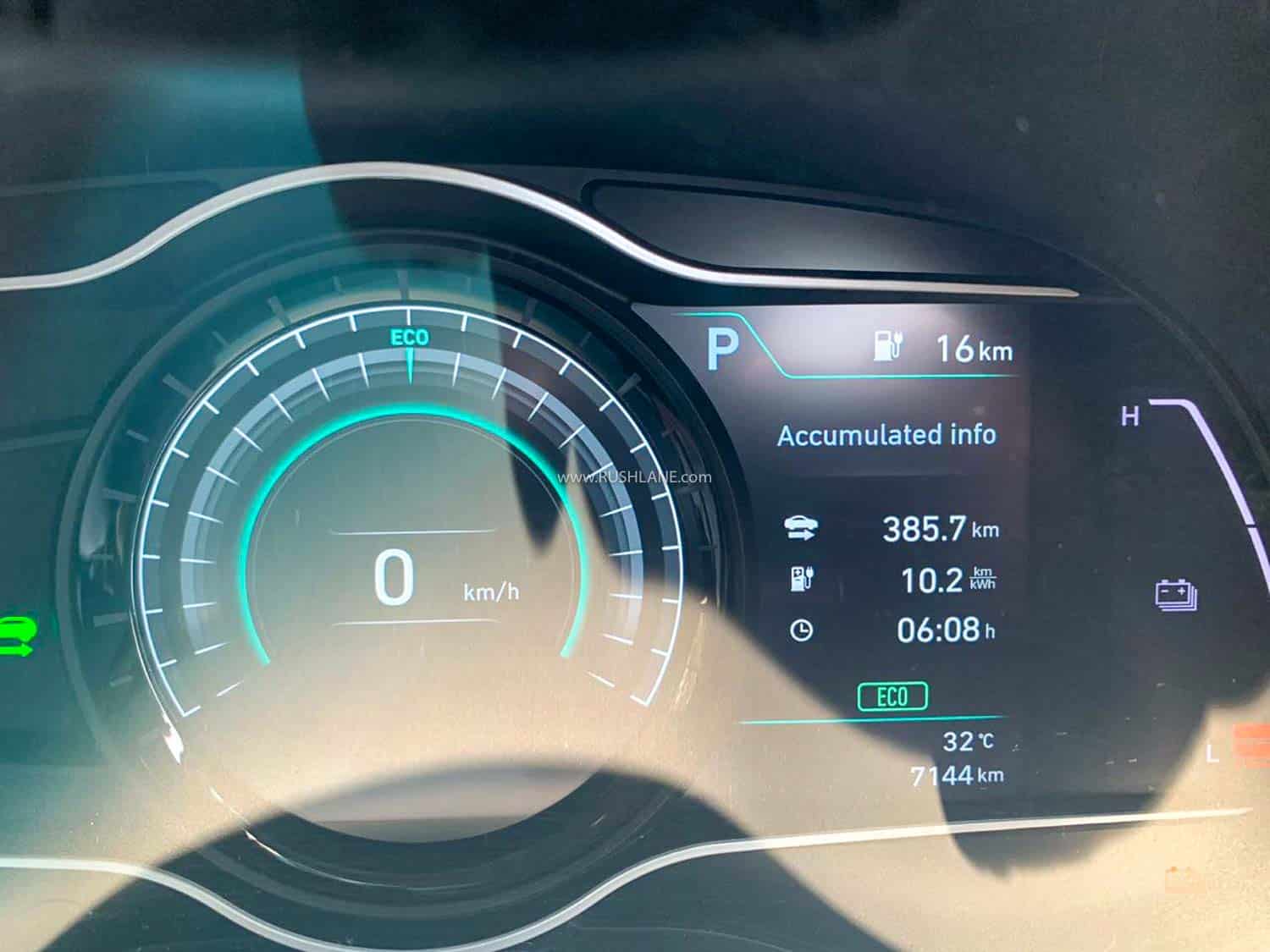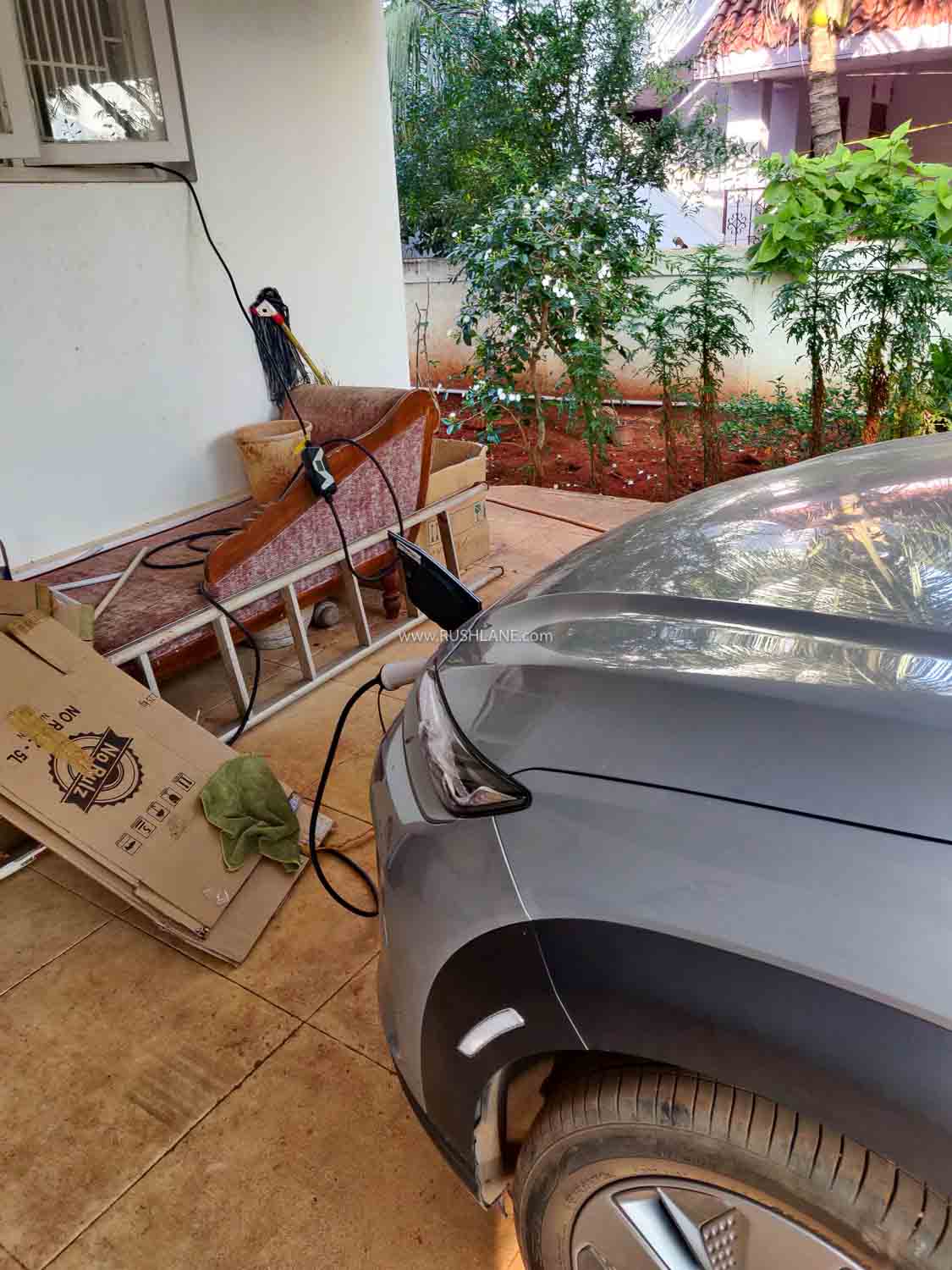Hyundai Kona electric owner Akhil Venkateshwaran has managed to complete a long distance journey in an EV. He has shared his detailed log with images.
When it comes to long journeys, can EVs (electric vehicle) be just as effective as their fossil fuel counterparts? This question is probably on the minds of many EV users as well as those that are planning to buy an EV. Well, a Hyundai Kona EV user from Bangalore decided to find out on his own by taking a return journey from Bangalore to Coimbatore. The distance (one-way) between the two cities is around 385 km, which is almost perfect to test an EV like Kona. It may be recalled that Hyundai Kona has an ARAI certified range of 452 km.
Akhil started his journey from Bengaluru at 5:30 AM with the battery indicator showing a full charge. After around 7 hours, he reached Coimbatore (Kovaipudur) at 12.40 PM. However, it wasn’t a non-stop ride. In between, there were two breaks of half an hour each, at Krishnagiri and Vaigundam. At the end of the journey, the balance range displayed on the screen was 16 km and the trip meter showed 389 km.


Hyundai Kona Electric completes journey from Bangalore to Coimbatore on single charge.
So, in this specific case, the actual range of Kona in real-life driving conditions came out to be around 405 km. This is quite good and seems enough to take care of range anxiety. During the journey, the AC was used around 40-50% of the time. For the remaining part, only the blower was used. Speed was maintained in the range of 70-90 kmph.
For the return journey, Kona was kept for charging overnight using a regular 16A 3 pin socket. It took almost 14 hours to fully charge the car from 2% to 100%. At night, there was a 30 minutes power cut and some low voltage periods as well. It is worth mentioning that Akhil had used a fast charger to charge his Kona EV. According to Akhil, it would have taken three more hours to charge the EV if the standard charger supplied by Hyundai was used. (Fast charging is already available in the Kona. Will charge 0-100% within 1.5 hours at BESCOM’s 25kW charging stations.)


Hyundai Kona EV getting charged at Coimbatore using a regular socket.
As the return journey involved increased elevation, it would have become difficult for Kona to reach its destination. Luckily, Akhil spotted a Volvo B9R and drove behind it for 130 km, maintaining a steady speed of 90-100 kmph. This reduced air drag and helped Kona reach its destination without any issues. At the end of the journey, the available range was 12 km.
Akhil also said that Kona significantly reduced cost of travel. Had he used his Ford Endeavour (3.2L diesel) for the journey, it would have cost him around Rs 5,500. On the Kona, the cost of charging came at just Rs 500 (for return journey, Rs 250 for single journey – about 65 paise per km). Even this cost can be reduced, says Akhil as his Kona is usually charged at Bangalore home using solar panels installed on the roof of his house.
When asked, what was the backup plan, in case the battery ran out during the journey? Akhil replied – “Most restaurants/CCDs etc are more than happy to let you charge. Hyundai also has installed chargers in many of their service centers, some are conveniently located on the highway, so can easily access and use them.” Plus, charging stations are coming up faster than ever before. “Vellore, Pondicherry and Trichy already have charging stations. Krishnagiri, Salem and Coimbatore will be online in a month or two,” he adds. Speaking about battery warranty, he says, “Hyundai has an 8 year warranty on the battery pack. Cost should be around 3L, getting cheaper with time.”
This test run clearly shows that EVs with good range can easily tackle intercity travel. It breaks the perception that EVs are only meant for city use. As supporting infrastructure such as EV charging stations come up on highways, more people will feel comfortable to use electric vehicles.
* With inputs from HV Kumar Forum on Facebook.
Source: Electric - rushlane.com



